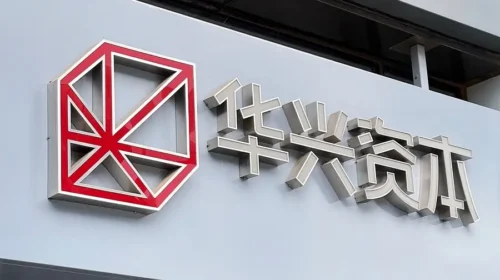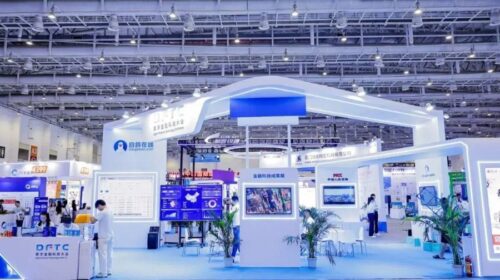Sunshine tries out asset leasing as insurance demand cools

The insurer has agreed to invest in a financial leasing company owned by Legend Holdings in an attempt to diversify its businesses
Key Takeaways:
- Sunshine Insurance will acquire 39.9% of JC International Finance & Leasing, a provider of asset leasing services for small businesses
- While the deal may appear to help Sunshine diversify, actual benefits may be marginal due to JC International’s small profit
By Warren Yang
In the world of dealmaking between businesses, some moves can leave you scratching your head trying to figure out the underlying strategy. A case in point is a recent agreement by Sunshine Insurance Group Co. Ltd. (6963.HK) to acquire a substantial stake in a financial leasing company owned by Legend Holdings Corp. (3396.HK), which is best known for its longtime holding in PC giant Lenovo.
The life insurance unit of Sunshine Insurance will buy a combination of existing and new shares that will give it 39.9% ownership of JC International Finance & Leasing Co. Ltd., which leases equipment and other assets to small businesses in areas like manufacturing and energy conservation, according to an announcement from Legend earlier this month. Sunshine will pay a total of about 1.3 billion yuan ($183 million) for the stake, according to the filing.
At first glance, the deal looks like a prudent diversification move for Sunshine, giving it a new income stream at a time when growth for its core insurance business has slowed. But actual benefits from the purchase may be marginal at best, at least for now, as JC International’s profit is too tiny to give any significant boost to Sunshine’s own bottom line. What’s more, JC International may be getting squeezed even more than Sunshine as China’s economy slows.
In its latest annual report, Legend touted that JC International’s revenue grew about 22% last year, with its number of small business customers up 13%. But the company’s net profit barely grew to 273 million yuan, which suggests that its profitability is under pressure, a common problem for many Chinese companies these days in a slowing economy. The slowdown is having a bigger impact on small businesses than larger ones, which is probably putting even larger pressure on JC International to sacrifice profits to retain those customers.
On an absolute basis, JC International’s net profit for 2023 is equal to just 7% of Sunshine’s own earnings for the year. Moreover, since Sunshine won’t own a majority of JC International, it will probably only book part of JC International’s net profit in its own income statement, so financial gains from this investment will be even more insignificant.
If Sunshine can use its own resources to help JC International grow substantially, this deal could still pay off nicely for the insurer in the longer term. Indeed, Legend says the share transfer marks a strategic partnership between JC International and Sunshine, which will provide support in areas spanning customer resources, sales channels and risk management.
But the two companies’ businesses are vastly different, even though they both are parts of a broader financial industry that includes everything from consumer and business lending to asset leasing and insurance.
Take risk management for example, an area where Legend says JC International and Sunshine can work together. While this is easy to say, an ability to manage risks from insurance liabilities may not be readily transferrable to risks related to equipment leasing that is part of JC International’s core business.
Different customer bases
There may be cross-selling opportunities between JC International and Sunshine, which would see the two refer their customers to each other. But how much either can generate in new sales this way is questionable as it’s not clear if the two companies’ customer bases overlap much. For example, it’s unlikely that any of the individual consumers that typically buy Sunshine’s core life insurance products would be interested in the types of products offered by JC International, whose customers are mostly businesses.
That said, it’s not hard to see how this deal has come about. From Legend’s perspective, the company is struggling to boost its profits and generate cash to fund its core business of providing new capital for its investment portfolio companies. After making a large net loss last year, the company reported a profit again in the first half of this year, but the figure was down more than 50% from a year earlier.
Sunshine, meanwhile, is having its own trouble growing its business as China’s economy slows, which is curtailing demand for non-essential products like insurance. In the first nine months of this year, its main insurance revenue increased a mediocre 7.6% to 12.4 billion yuan, according to a business update for the period. At the same time, the company has quite a lot of cash, which totaled about 27 billion yuan at the end of last year.
So, it’s understandable that Sunshine might want to put some of that cash to work through acquisitions and other opportunities to diversify and boost its growth. But it still needs to make sure such investments make sense. In this case, Sunshine is getting its stake by paying about 12 times JC International’s net profit for last year. This translates into a return on equity (ROE) of just 8.3%, which probably isn’t high enough to compensate for the risk the company is taking, though it’s higher than Sunshine’s own ROE of 6.4%.
Sunshine shares rose a bit after the announcement of the deal, but gave back all the gains over the next week. They now trade at a relatively low price-to-earnings (P/E) ratio of 8.6 and a price-to-sales (P/S) ratio of just 0.5. But that’s pretty much in line with the slightly lower P/S of 0.4 for insurance heavyweight China Life (2628.HK; 601682.SH), which suggests that Chinese insurers – and financial service providers in general – have fallen out of favor with investors.
Sunshine could clearly use a new growth driver outside its core insurance business. But it also needs to spend its money wisely, and the last thing it wants to do is invest in something that generates dud returns. In that respect, Sunshine management may have a tough time justifying the JC International deal to skeptical investors who may have been initially excited by the investment but later cooled after realizing its limited potential.
To subscribe to Bamboo Works free weekly newsletter, click here






